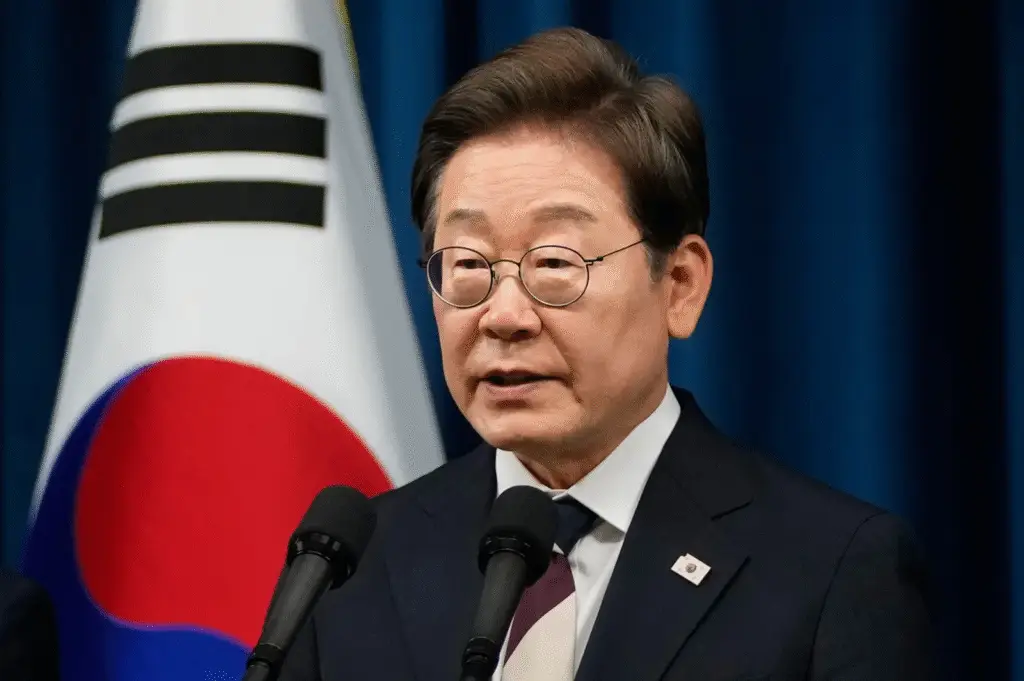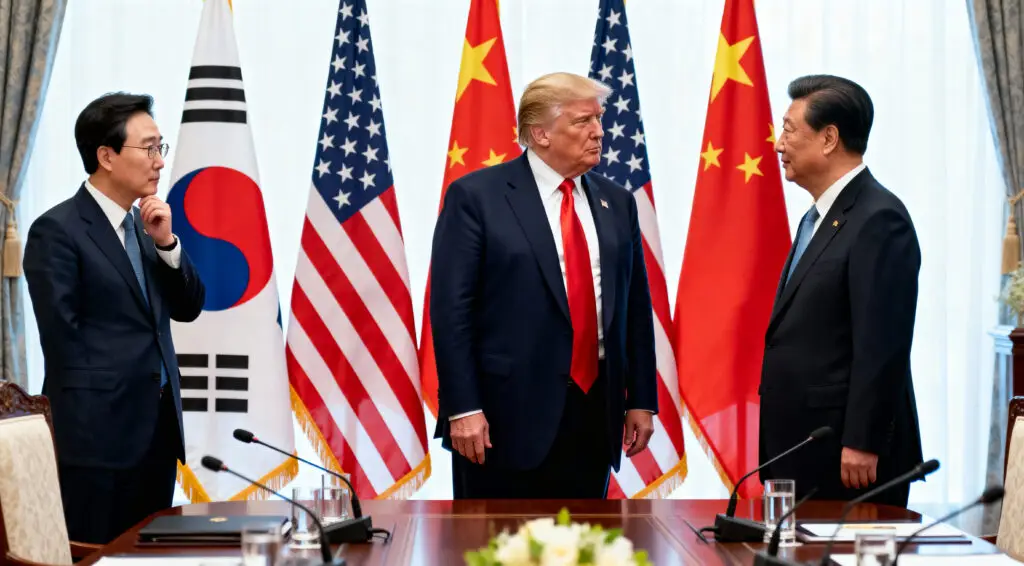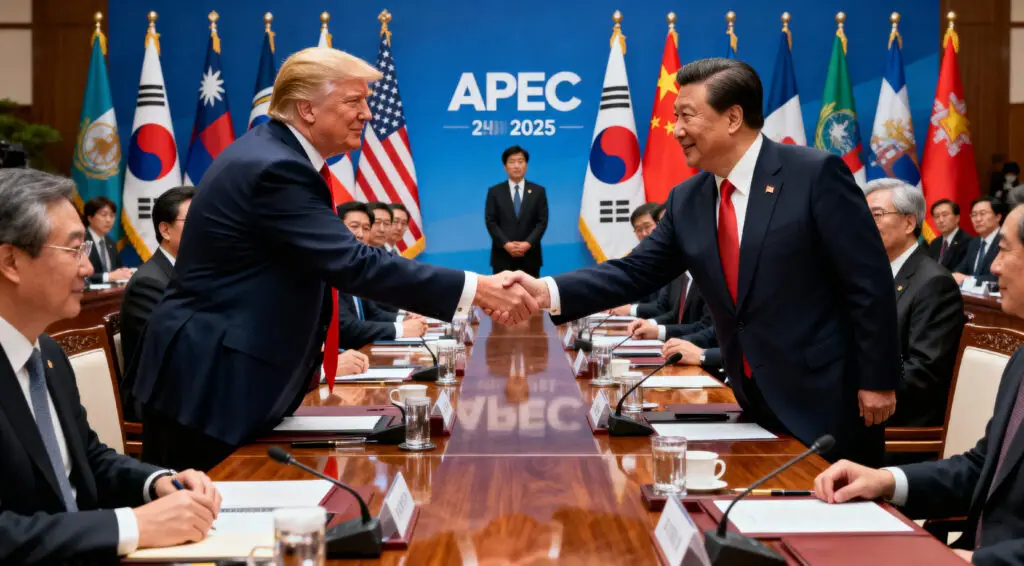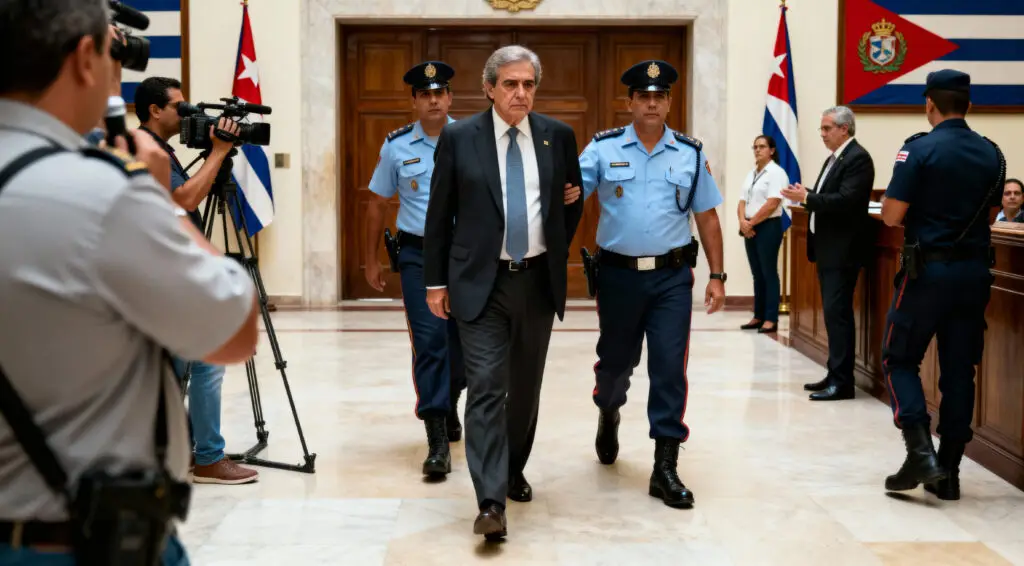Seoul Caught Between Washington and Beijing’s Competing Agendas
One of President Lee Jae-myung’s biggest foreign policy problems is keeping the peace between the US and China. Seoul is still stuck between relying on security and relying on the economy as President Xi Jinping ends his three-day official visit.
The visit came after a short state visit by U.S. President Donald Trump, which showed how hard Seoul is trying to please both nations. Lee’s government wants stability in trade and defense, even if the battle between Washington and Beijing is getting much worse.

Xi’s Visit Reinforces China’s Expanding Diplomatic Influence
Xi’s trip to South Korea was his first in eleven years, which shows that Beijing is once again interested in diplomacy in the area. At the APEC conference, the Chinese leader met with Lee on the side to talk about China’s international economic strategy.
He suggested creating a World Artificial Intelligence Cooperation Organization and said that China will host the next APEC meeting. Beijing’s focus on free trade and working together on technology was different from Washington’s lack of interest and Trump’s protectionist approach.
South Korea Seeks Easing of China’s Cultural Restrictions
Lee brought up worries about China’s ongoing restrictions on Korean entertainment imports that are connected to earlier disputes over THAAD. Seoul expects that Xi’s visit will help lift the unofficial sanctions that have hurt the K-pop, TV, and movie sectors since 2017.
Better cultural collaboration might help things go back to normal and bring back Korea’s creative exports to China’s huge consumer market. The action would also show that the economies of both countries are getting back to normal, even while trade tensions and diplomatic hostility are still high.
Recommended Article: Trump and Xi Agree to One-Year Trade Truce to Ease Tensions
Denuclearization Talks Highlight Limited Leverage Without Beijing
Xi and Lee discussed North Korea’s nuclear program, while Pyongyang dismissed fresh disarmament negotiations as unfeasible. Analysts say that China has to be involved in any diplomatic success since it has a lot of power over North Korea’s economy.
In the meanwhile, Trump’s offer to meet with Kim Jong Un, which was not accepted, showed how little diplomatic power Washington has on the Korean Peninsula. If China doesn’t help, efforts to restart multilateral peace talks probably won’t get very far anytime soon.
Economic Entanglement Deepens Seoul’s Strategic Vulnerability
China is still South Korea’s biggest commercial partner, giving its manufacturing and export industries important parts. Because of this dependency, it is harder for Seoul to completely agree with Washington’s plans for strategic and technical containment.
Beijing’s readiness to limit access to markets, such as through rare earth regulations or selective sanctions, shows that it has economic power. As trade concerns rise in the area, South Korean businesses, especially semiconductors and shipbuilding, are still not sure what will happen.
U.S. Alliance Faces Strain Amid Seoul’s Balancing Strategy
Washington may be upset that Seoul is working with Beijing because it wants its allies to show unity in the face of growing superpower competition. U.S. officials are concerned that further talks with China may hurt coordinated security arrangements and information sharing in the Indo-Pacific.
South Korea’s stance shows how hard it is for middle countries to deal with partnerships that are based on conflicting economic and defense needs. Seoul can safeguard its export-driven economy and keep its key security assurances under the U.S. alliance by being flexible.
Beijing’s Patient Approach Strengthens Regional Position Gradually
China keeps using strategic prudence while letting the unpredictability of the U.S. slowly weaken partnerships over time. This patient diplomacy makes Beijing look like a steady partner, which is different from how the US changes its tariffs and foreign policy.
Experts say that future phases may involve calibrated economic pressure or selective engagement that focuses on Korea’s reliance on Chinese markets. Beijing’s constant message of collaboration and consistency appeals to regional players that want to avoid policy changes.
Regional Order Shifts as Allies Pursue Independent Diplomacy
To protect economic stability, longstanding U.S. partners in Asia are starting to work more on their own with China. This is an example of the larger shift toward more flexible alliances, where trade needs are becoming more important than inflexible alliances.
Seoul’s difficulty is to keep things balanced between the two partners’ competing needs while also making sure that neither party feels left out. As rivalry between superpowers grows, South Korea’s ability to balance its interests may set a new standard for middle-power diplomacy in Asia.























